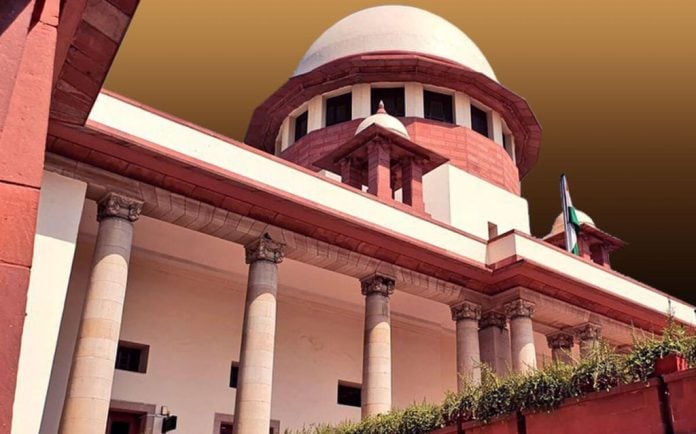The Election Commission on Wednesday filed an affidavit in the Supreme Court on a petition seeking cancellation of those political parties, which promise freebies to the electorate right before the polls.
The Commission, while supporting the formation of an expert committee on the matter, refused to become a part of it, stating that since it was a constitutional authority, being a member of such an expert body could influence its decision.
It would also not be appropriate for the Commission to be part of the Committee, especially if the Ministries or Government Bodies were members of the same, noted the Commission.
It said since there were continuous elections in the country, any opinion or view or comment during the deliberations in a multi-member body might, in the event of being publicised, amount to pre-decide the issue and disturb the level-playing field.
Chief Justice of India, N.V. Ramana, during the last hearing of the matter, had observed that this situation arose, since the poll body did not take a stand.
The EC said the oral observations of the Bench in this regard had caused irreparable damage to the reputation of this institution, which was build over the years.
It further said that reputational damage of this magnitude did not augur well for the country, which was relatively younger, but the largest and stable democracy in the world.
While welcoming the setting up of an expert body, the Commission said that the Committee will strengthen its existing guidelines in the interest of purity of the electoral process.
As per the affidavit, the Commission could not underestimate the benefits of cross-subsidisation or situation/sector-specific relief for addressing differential vulnerabilities of certain sections.
It exemplified with natural disasters or pandemic, stating that providing life-saving medicines, food and funds may be a life and economic saviour during such times, however, the same could be termed as ‘freebies’ during normal times.
It said in order to take a holistic and comprehensive view of the matter of freebies that have the potential to influence the level-playing field during the electoral process, a broader appreciation of and due weightage to the multiple factors was required.
It said the factors should include the nature and contours of promise, its coverage, whether universal or to a class justified on the touchstone of reasonable classification, prevailing context, and the specific situation prevailing in an area during the time of declaration.
The EC pointed out that political parties or candidates usually begin to campaign around a year prior to the elections, and do so more intensely around six months prior to the expiry of tenure of the House.
It was possible that political parties made such promises, knowing fully well that the same would be banned or adversely commented by the regulatory authority, which may lead to better publicity than actual implementation after the elections, noted the Commission.
It said depending on sentiment analysis of the publicity, the possibility of dynamic tweaking of the banned announcement cannot be ruled out.
On Tuesday, the Aam Aadmi Party (AAP) had filed an intervention petition in the Apex Court, stating that the plea by Advocate and BJP leader Ashwini Upadhyay was a “Political Interest Litigation.”


